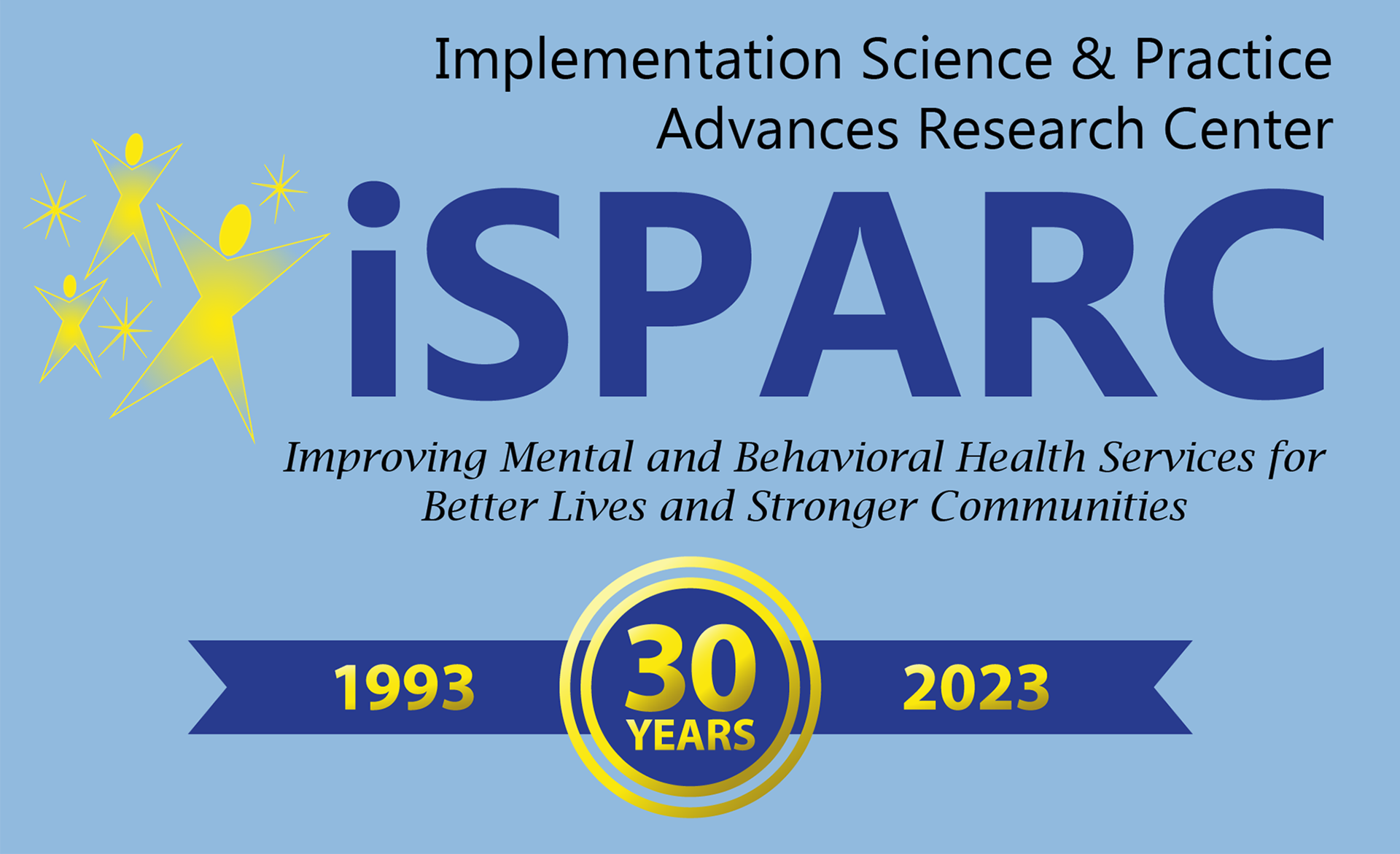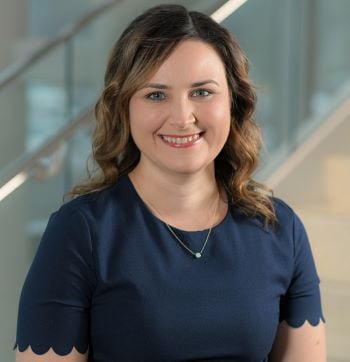Transition Age Youth
|
The transition from adolescence into mature adulthood is often a precarious time for young people, ages 14 to 30, living with serious mental health conditions, as these conditions may impede the development of skills and capacities essential for successful adult functioning. Our research focuses on developing knowledge about developmentally appropriate and effective interventions to help transition-age youth and emerging adults with serious mental health conditions. We emphasize mental health interventions and supports that help young people successfully complete their schooling and training, and achieve their adult career goals. We examine policy and systems issues and gaps, particularly as they may contribute to youth and young adults entering inappropriate service sectors or receiving inadequate, ineffective services. |
|
We are interested in:
- Developing and testing strategies that better engage transition-age youth and emerging adults in psychotherapy
- Developing and testing educational/training and employment/career support interventions
- Malleable factors associated with success in schooling/training/employment that may inform targets of future interventions
- Developing and testing interventions that improve access to effective mental health and substance abuse services and reduce involvement in the justice system
- System features that facilitate or impede better collaboration between child and adult systems serving transition-age youth and emerging adults
- The Transitions to Adulthood Center for Research (Transitions ACR)
Ongoing Research
The Center for Community Inclusion and Reflective Collaboration (The CIRC Center)
Title: The Center for Community Inclusion and Reflective Collaboration (The CIRC Center)
Dates: 9/1/2023-8/31/2028
Funder: National Institute on Disability, Independent Living, and Rehabilitation Research (NIDILRR) and Substance Abuse and Mental Health Service Administration (SAMHSA)
Grant Number: 90RTCP0010
Funding: $4,375,000
PIs: Kathryn Sabella, Ph.D., UMass Chan Medical School, and Elizabeth Thomas, Ph.D., Temple University
Description: This 5-year project will serve as a national leader in state-of-the-art research and knowledge translation activities to significantly advance community living and participation outcomes among transition-age youth (TAY) with serious mental health conditions from disadvantaged, vulnerable, and marginalized backgrounds.
The Center’s five research studies and knowledge translation activities will: 1) generate new knowledge regarding developmentally appropriate interventions to promote participation; 2) generate new knowledge about system and policy issues affecting community living and participation; and 3) provide training, dissemination, and technical assistance to TAY and other key stakeholders.
Development and Evaluation of an Avatar Guided Mobile Health for Emerging Adults
Title: Development and Evaluation of an Avatar Guided Mobile Health for Emerging Adults
Dates: 2023-2026
PI: Lourah Kelly, Ph.D.
Funder: National Institute on Alcohol Abuse and Alcoholism (NIAAA)
Funding: $
Description: This newly funded R00 is part of a phased K99/R00 Pathway to Independence Award which supports Dr. Kelly’s transition from postdoctoral fellow to independent research scientist, through training, mentorship, and a pilot research project.
Emerging adults have higher rates of binge drinking, thoughts of suicide, and suicide attempts than any other age group, but very low use of substance use treatment. The R00 phase of this project pilots, refines and evaluates a novel mobile health intervention guided by an avatar for emerging adults and who binge drink and experience thoughts of suicide.
The intervention is implemented within the emergency department as a key point of healthcare service entry. Because emerging adults prefer mobile health and self-guided interventions and such technology is widely accessible, the proposed mobile health intervention could offer significant public health benefit in reducing alcohol use problems and suicidal thoughts in emerging adults.
Treatment of Justice-Involved Emerging Adults with Substance Use Disorders
Title: Treatment of Justice-Involved Emerging Adults with Substance Use Disorders
PIs: Ashli Sheidow, PhD & Maryann Davis, PhD
Funding: National Institute of Drug Abuse (NIDA)
Time Frame: 2016-2021
Description: Multi-PI grant to conduct clinical trial to test the effectiveness of an intervention to reduce antisocial behavior in 17-21 year olds with alcohol and other drug abuse and recent justice system involvement.
Building a Lasting Foundation to Advance Actionable Research on Recovery Support Services for High Risk Individuals: The Initiative for Justice and Emerging Adult Populations
Title: Building a Lasting Foundation to Advance Actionable Research on Recovery Support Services for High Risk Individuals: The Initiative for Justice and Emerging Adult Populations
PI: Ashli Sheidow, PhD & Michael McCart, PhD
Co-I: Maryann Davis, PhD
Funding: National Institute of Drug Abuse (NIDA)
Time Frame: 2020-2025
Description: This partnership between advanced researchers, persons in recovery, providers, and payors will advance research on peer supports and recovery residences for (a) public system involved emerging adults (ages 16-25) and (b) individuals who are justice-involved (including emerging adults). The Initiative partners will: (1) identify priority research areas, (2) grow the field of early career investigators in this research, (3) provide funds and guidance for pilot studies, and (4) conduct dissemination and outreach to the larger field.
Developing Implementation and Fidelity Monitoring Tools for the Bridge for Resilient Youth in Transition (BRYT) Program
Dates: 9/1/2020-8/31/2023
Funder: National Institute on Disability, Independent Living, and Rehabilitation Research (NIDILRR)
Project Number: 90IFDV0014
Funding: $598,632.00
PI: Kathryn Sabella, PhD
Description: This project develops, tests, and refines standardized implementation products for the Bridge for Resilient Youth in Transition (BRYT), an innovative program that supports high school students returning from an extended absence due to mental health crises. Most schools are ill-prepared to adequately support students’ unique clinical, social, and academic needs during this transition. The BRYT program provides integrated and individualized supports for these students and their families. A preliminary evaluation of BRYT showed positive outcomes as a result of BRYT participation and BRYT’s implementation in over 100 high schools to-date establishes it as a feasible intervention. However, BRYT currently lacks the specific and standardized tools required to implement and evaluate BRYT in a future fully powered randomized control trial. This project produces: a BRYT intervention logic model and a BRYT implementation package including includes a BRYT manual, a BRYT training and technical assistance plan and fidelity measures and protocols. Development activities include: (1) focus groups and interviews with BRYT stakeholders to finalize the BRYT logic model; (2) partnering with BRYT stakeholders to develop the BRYT implementation package; and (3) piloting and iteratively refining the implementation package with active feedback from BRYT stakeholders. Project outcomes foster the establishment the proof of concept of the BRYT intervention (i.e., BRYT logic model) and the proof of concept and proof of product of the BRYT implementation package. This project is a collaboration of the Brookline Center and the Transitions to Adulthood Center for Research, Implementation Science and Practice Advances Research Center (iSPARC) at the UMass Chan Medical Schools.
The Learning & Working During the Transition to Adulthood Rehabilitation Research & Training Center (2019-2024)
Title: The Learning & Working During the Transition to Adulthood Rehabilitation Research & Training Center (2019-2024)
Dates: 10/1/2019-9/30/2024
Funder: National Institute on Disability, Independent Living, and Rehabilitation Research (NIDILRR)
Funding: $ 4,374,975
Co-PIs: Maryann Davis, Ph.D. & Marsha Ellison, Ph.D.
Director of Research: Kathryn Sabella, Ph.D.
Director of Knowledge Translation: Marsha Ellison, Ph.D.
Description: The Learning and Working During the Transition to Adulthood RRTC (L&W RRTC) will develop and share new knowledge about core concepts, interventions, and policies to improve the transition to employment for the 6.5 million 14-30-year-olds with Serious Mental Health Conditions (SMHC) in the U.S. The need to improve their transition to employment is urgent. This population struggles greatly to complete secondary school, attain postsecondary credentials, and secure employment. Failure to successfully enter the labor market may begin a lifetime of employment related challenges and contribute to a life of poverty and dependence on Federal benefits.
The mission of the L&W RRTC is to use the tools of research and knowledge translation to help ensure that policies, programs, and supports for Y&YAs with SMHC help them build the cornerstones that support successful long-term adult work lives.
The proposed RRTC will conduct a coordinated and comprehensive set of activities that will; (1) further the evidence base for interventions that build these capacities, (2) explore factors that contribute to successful transitions to employment in vulnerable subgroups of Y&YAs with SMHC, (3) provide national statistics on how Y&YAs with SMHC and their vulnerable subgroups are faring in education and employment, and (4) explore barriers and facilitators to access that Y&YAs with SMHC have to WIOA-mandated services for students with disabilities and to Career and Technical Education. Through state of the science knowledge translation processes, the L&W RRTC will speed capacity-building for service providers, the movement of findings into practice and policy, and prepare the future research workforce in this area. The L&W RRTC’s activities are deeply embedded in the participatory involvement of Y&YAs with SMHC, their families, service providers and policy experts.
Promoting Access, Inclusion, and Success of Students with Emotional Disturbance in Career and Technical Education
Title: Promoting Access, Inclusion, and Success of Students with Emotional Disturbance in Career and Technical Education
Dates: 9/1/2022-8/31/2025
Funder: National Institute on Disability, Independent Living, and Rehabilitation Research (NIDILRR)
Funding: $599,725
PI: Marsha Langer Ellison, Ph.D.
Description: This project revises and pilot tests Translating Evidence to Support Transitions in Career and Technical Education (TEST-CTE), a guide for special educators on how to promote CTE for special education students with emotional disturbance. Prior research has shown improved employment outcomes after four credits of high school CTE for these students, leading to the development of TEST-CTE. Project goals are to:
- revise the existing TEST-CTE guide to assure a diversity, equity, and inclusion (DEI) lens
- conduct a randomized pilot of TEST-CTE
Student-level outcomes are assessed for CTE credits earned, the presence of post-secondary transition goals for careers, student vocational self-efficacy, and stigma about CTE coursework. Project outcomes include a revised TEST-CTE guide that assures cultural relevance for minority students, and tested study processes and outcomes.
Helping Youth on the Path to Employment (HYPE): Creating Economic Self-Sufficiency
Title: Helping Youth on the Path to Employment (HYPE): Creating Economic Self-Sufficiency
Dates: 9/30/2018-9/29/2023
Funder: National Institute on Disability, Independent Living, and Rehabilitation Research (NIDILRR)
Funding: $2,374,954
PIs: Michelle G. Mullen, Ph.D. and Marsha Langer Ellison, Ph.D.
Description: The goal of this project is to create a career development program, Helping Youth on the Path to Employment (HYPE), to improve the negative education and employment outcomes of young adults with mental health conditions (MHC). The HYPE program aims to minimize disruptions of post-secondary education and promote degree completion to drive competitive employment in meaningful careers and financial self-sufficiency. Project activities include: (1) conducting a fully-powered randomized trial testing HYPE’s efficacy; (2) establishing implementation sites meeting HYPE fidelity standards; (3) providing high quality HYPE-coordinated postsecondary education and employment services; (4) recruiting and retaining college students; (5) and collecting and analyzing data on HYPE recipients and an active control group of college students over two years related to academic progression and performance, and employment in benefitted jobs. Project outcomes include developing HYPE data and products in preparation for wider implementation, and scale-up testing and adoption. Dissemination products include a mobile application on accommodations; peer-reviewed publications, policy white paper, and cost-analysis; informational tip sheets, webinars, presentations; and HYPE webpage.
Test - Translating Evidence to Support Transitions: Improving Outcomes of Youth in Transition with Psychiatric Disabilities by Use and Adoption of Best Practice Transition Planning
Title: TEST-Translating Evidence to Support Transitions: Improving Outcomes of Youth in Transition with Psychiatric Disabilities by Use and Adoption of Best Practice Transition Planning
Dates: 9/30/2015 – 9/29/2020
Funder: NIDILRR
Funding: $748,557
PI: Marsha Ellison, Ph.D.
Description: The goal of the newly funded Translating Evidence to Support Transitions (TEST) grant is to increase the use and adoption of research-based best practices in transition planning services for high school students with EBD receiving special education services. Outcomes from TEST include the development of guides and curricula for practicing and implementing best practices in transition planning for students with EBD. We anticipate wide scale adoption and use of TEST practices by special education transition teams across the US, which will in turn improve employment and education outcomes for this vulnerable group. All TEST activities will be built on an implementation science framework and guided by knowledge translation principles. Over the five year project timeline, data and feedback will be collected at each step in order to continually improve TEST materials.
Personnel: Co Investigators: Maryann Davis, Ph.D., Sloan Huckabee, Ph.D., Deanne Unruh, Ph.D., Catherine Fowler, Ph.D., David Test, Ph.D., Joann Starks, ME.d., Mary Wagner, Ph.D., UMass Chan Project Personnel: Lauren Davis, B.S., Laura Golden, B.A.

 Maryann Davis, Ph.D.
Maryann Davis, Ph.D. Marsha Ellison, Ph.D.
Marsha Ellison, Ph.D. Kathryn Sabella, Ph.D.
Kathryn Sabella, Ph.D.  Lourah Kelly, Ph.D. Assistant Professor
Lourah Kelly, Ph.D. Assistant Professor